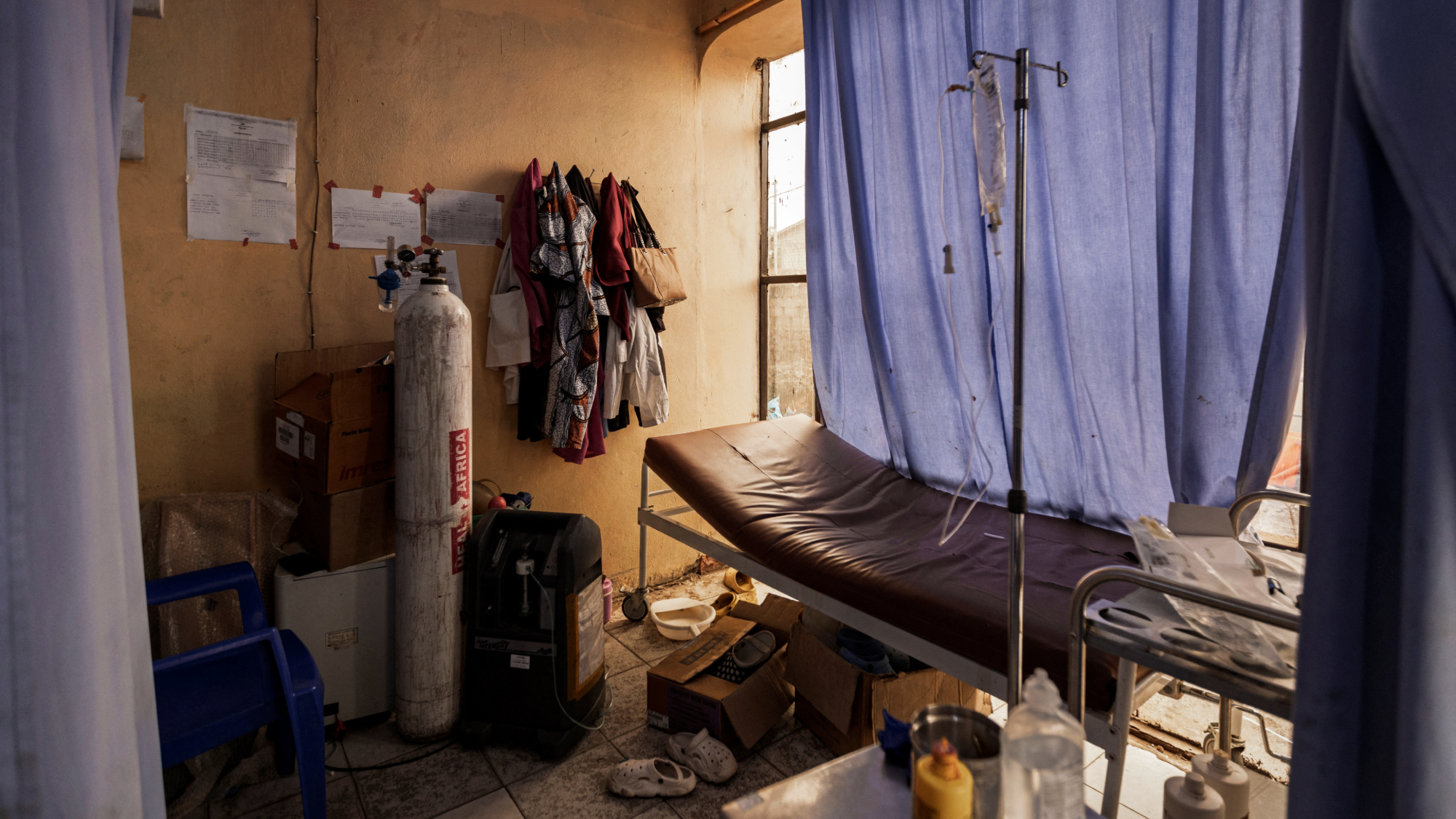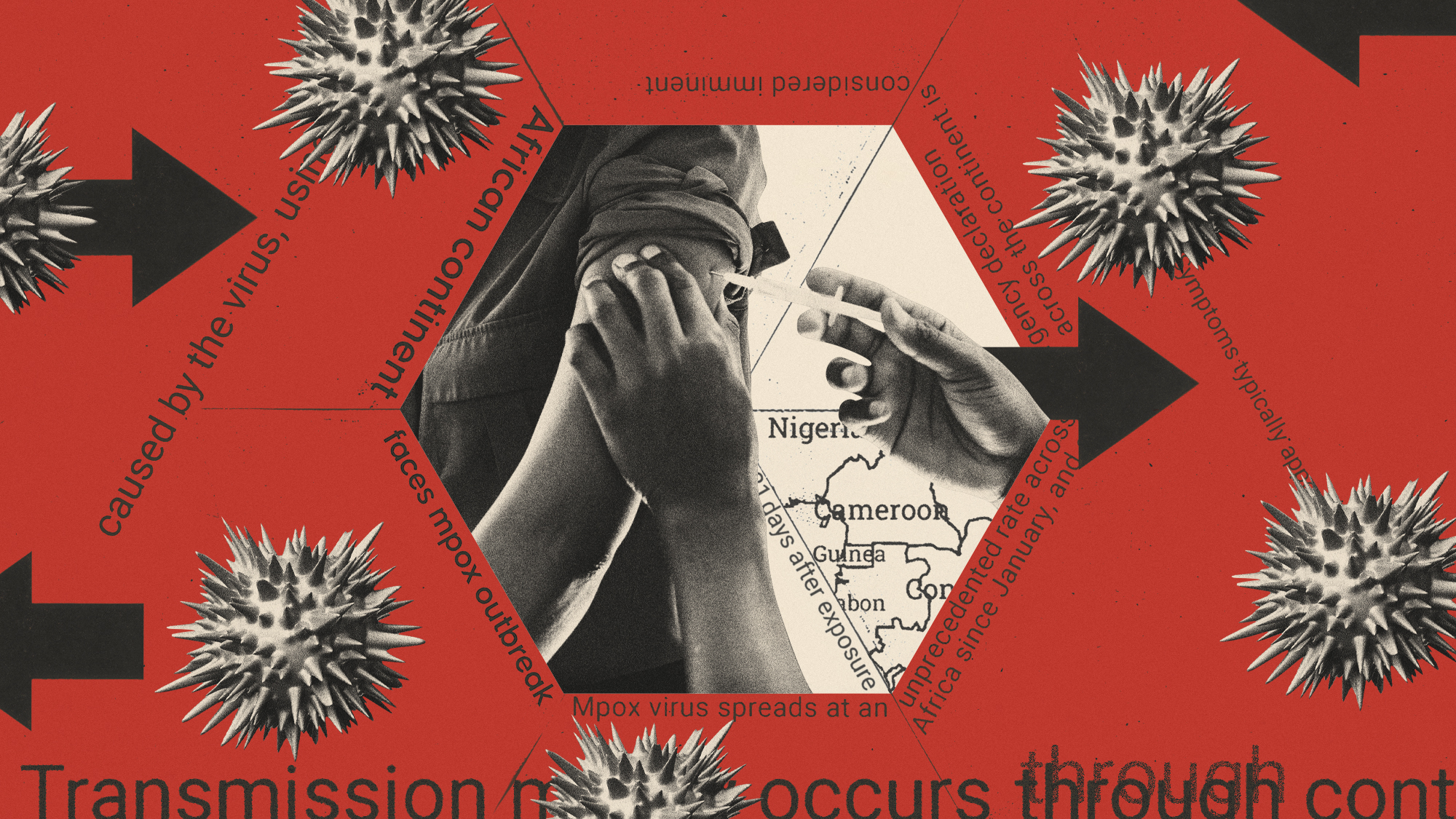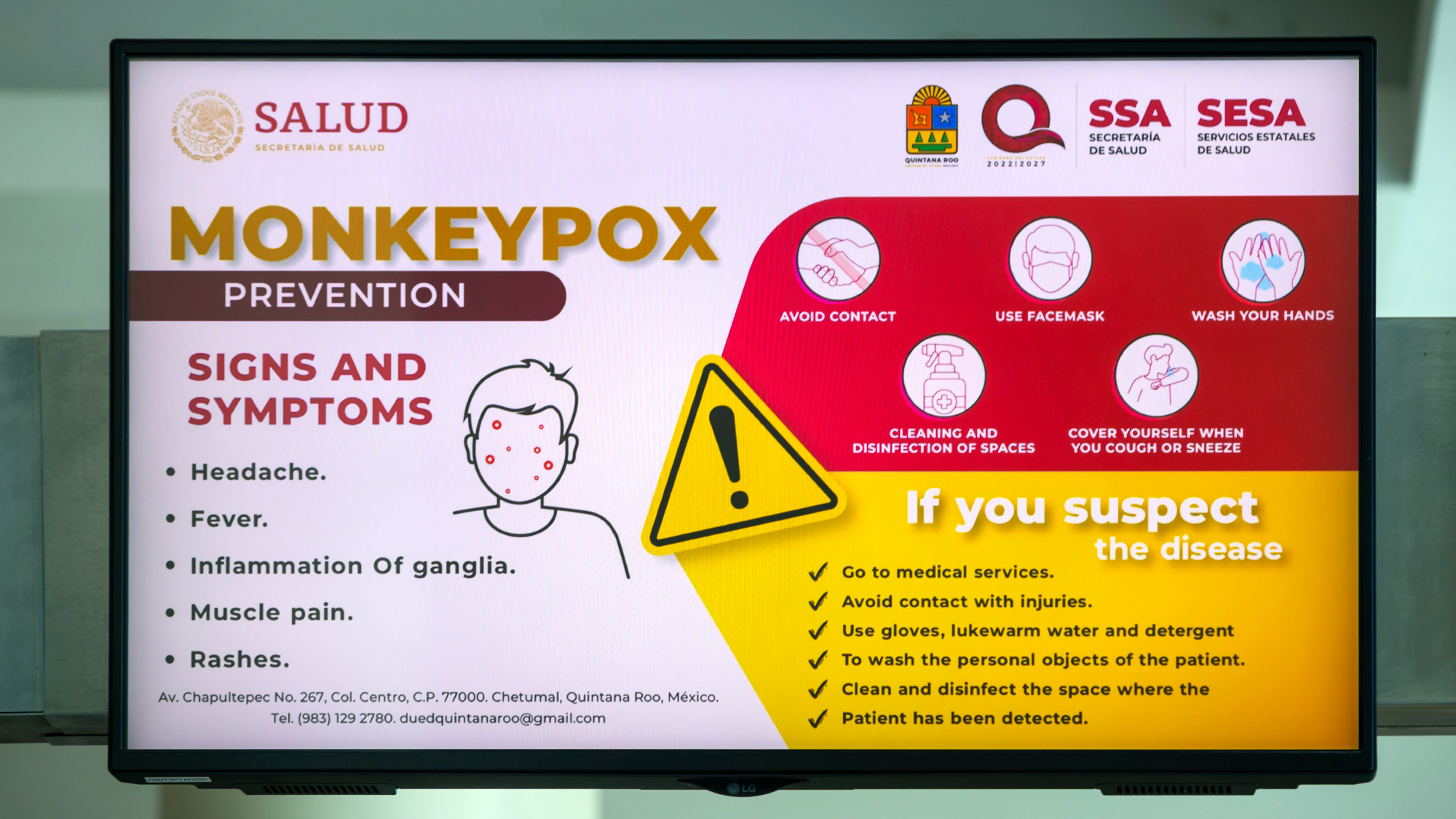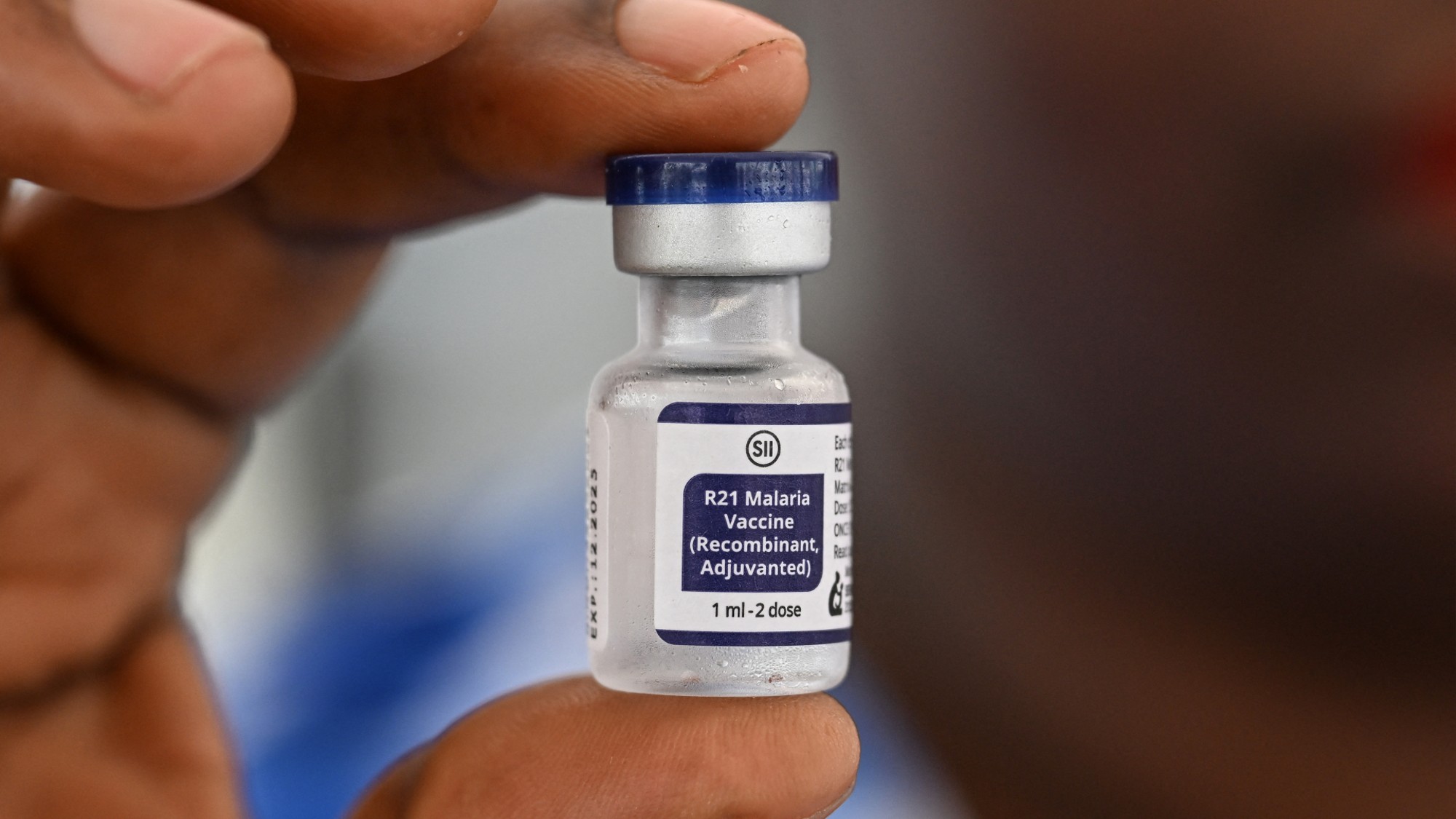E-cigarettes should be prescribed on the NHS, says health body
Public Health England says vaping is 95% less harmful than smoking and could save thousands of lives

A free daily email with the biggest news stories of the day – and the best features from TheWeek.com
You are now subscribed
Your newsletter sign-up was successful
E-cigarettes should be banned indoors, says WHO
March 27
A new report from the World Health Organization has warned that e-cigarettes could be more toxic than many people currently believe and recommended that the devices should be banned indoors. But some experts say the UN agency's advice is an "overreaction" that could cost lives.
Contrary to the claims of some manufacturers who argue that e-cigarettes are a comparatively safe alternative to smoking, the WHO's report said that e-cigarettes expose smokers and non-smokers alike to harmful chemicals.
The Week
Escape your echo chamber. Get the facts behind the news, plus analysis from multiple perspectives.

Sign up for The Week's Free Newsletters
From our morning news briefing to a weekly Good News Newsletter, get the best of The Week delivered directly to your inbox.
From our morning news briefing to a weekly Good News Newsletter, get the best of The Week delivered directly to your inbox.
The report urged tougher controls, arguing that the "smoke" emitted by e-cigarettes "is not merely water vapour as is often claimed in the marketing for these products", but often contains harmful pollutants. The WHO also warned that using e-cigarettes, or "vaping," could lead to a "renormalisation" of smoking.
The WHO added: "The fact that ENDS (electronic nicotine delivery systems) exhaled aerosol contains on average lower levels of toxicants than the emissions from combusted tobacco does not mean that these levels are acceptable to involuntarily exposed bystanders."
The report was welcomed by many UK health officials, the Daily Telegraph reports. Professor John Ashton of the Faculty of Public Health told the paper: "Most adult smokers start smoking before the age of 18. That's why many public health experts are concerned that the advertising of electronic cigarettes could make it seem normal again to think smoking is glamorous, when it is anything but.
"We also don't know enough yet about the harms and side effects of electronic cigarettes, and it will take years before we can be sure what they are."
A free daily email with the biggest news stories of the day – and the best features from TheWeek.com
However some experts believe that strict regulation could mean fewer people giving up conventional cigarettes in exchange for their electronic counterparts, which could lead to more smoking-related deaths.
Gerry Stimson, from Imperial College London, told The Times: "What is needed is light-touch regulation and a proper appreciation of trade-offs between regulation to protect consumers whilst not destroying the value these products offer to smokers who want to quit smoking".
He added: "The WHO position paper appears to have cherry-picked the science, used unnecessary scaremongering and misleading language about the effects of nicotine."
Are e-cigarettes bad for you? Doctors urge new controls
17 June
More research into the potential risks of e-cigarettes is needed, experts have said, after a new study found that nearly 30 million people across Europe now use the battery-powered nicotine products.
A survey of 26,500 people across 27 European countries suggested that e-cigarettes have been tried by 20.3 per cent of current smokers, 4.7 per cent of ex-smokers and 1.2 per cent of people who never smoked. The study concludes that more than 29 million European adults have tried the products.
The rise in e-cigarette use has led to a "staggering" growth in new products; around ten new brands come to market every month, Reuters reports.
The study, published in the journal Tobacco Control, emphasised the need for more research into the effects of using electronic cigarettes.
"These findings underscore the need to evaluate the potential long-term impact of e-cigarette use on consumer health, cessation and nicotine addiction and formulate a European framework for e-cigarette regulation," the report concluded.
The study was published as a group of doctors and health experts from around the globe urged the World Health Organisation (WHO) to enact new controls on e-cigarettes.
A letter to the director general of the WHO, Margaret Chan, recommended the same kind of regulation as tobacco products, with specific bans on how the devices are promoted and advertised.
The group wrote: "By moving to the e-cigarette market, the tobacco industry is only maintaining its predatory practices and increasing profits.
"Manufacturers of electronic nicotine delivery systems are making a range of false and unproven claims, misleading the public into thinking these products are harmless (they are not) and effective cessation aids (unknown)".
But the issue of how e-cigarettes should be regulated remains contentious. Last month 53 scientists urged the WHO not to impose bans on the new devices, suggesting that they may actually be beneficial to people's health.
"These products could be among the most significant health innovations of the 21st century – perhaps saving hundreds of millions of lives," they wrote. "The urge to control and suppress them as tobacco products should be resisted".
-
 What to know before filing your own taxes for the first time
What to know before filing your own taxes for the first timethe explainer Tackle this financial milestone with confidence
-
 The biggest box office flops of the 21st century
The biggest box office flops of the 21st centuryin depth Unnecessary remakes and turgid, expensive CGI-fests highlight this list of these most notorious box-office losers
-
 What are the best investments for beginners?
What are the best investments for beginners?The Explainer Stocks and ETFs and bonds, oh my
-
 Mystery illness spreading in Congo rapidly kills dozens
Mystery illness spreading in Congo rapidly kills dozensSpeed Read The World Health Organization said 53 people have died in an outbreak that originated in a village where three children ate a bat carcass
-
 America is leaving WHO. What does that mean for public health?
America is leaving WHO. What does that mean for public health?Today's Big Question Trump orders the withdrawal
-
 No more bugging: how Egypt became certified malaria-free
No more bugging: how Egypt became certified malaria-freeUnder the radar It was a century-long effort
-
 Baby food is not as healthy as it should be
Baby food is not as healthy as it should beUnder the Radar Labels are leaving things out. And brands are highlighting only what they want to.
-
 Mpox: how dangerous is new health emergency?
Mpox: how dangerous is new health emergency?Today's Big Question Spread of potentially deadly sub-variant more like early days of HIV than Covid, say scientists
-
 WHO declares mpox a global health emergency
WHO declares mpox a global health emergencySpeed Read An outbreak of the viral disease formerly known as monkeypox continues to spread in Africa
-
 Have we defeated malaria?
Have we defeated malaria?The Explainer Roll-out of low-cost vaccine means a world free from disease that claims 600,000 lives a year 'finally within sight'
-
 Pharmaceutical companies are warning of a rise in knockoff drugs
Pharmaceutical companies are warning of a rise in knockoff drugsUnder the Radar The World Health Organization is also urging consumers to be cautious